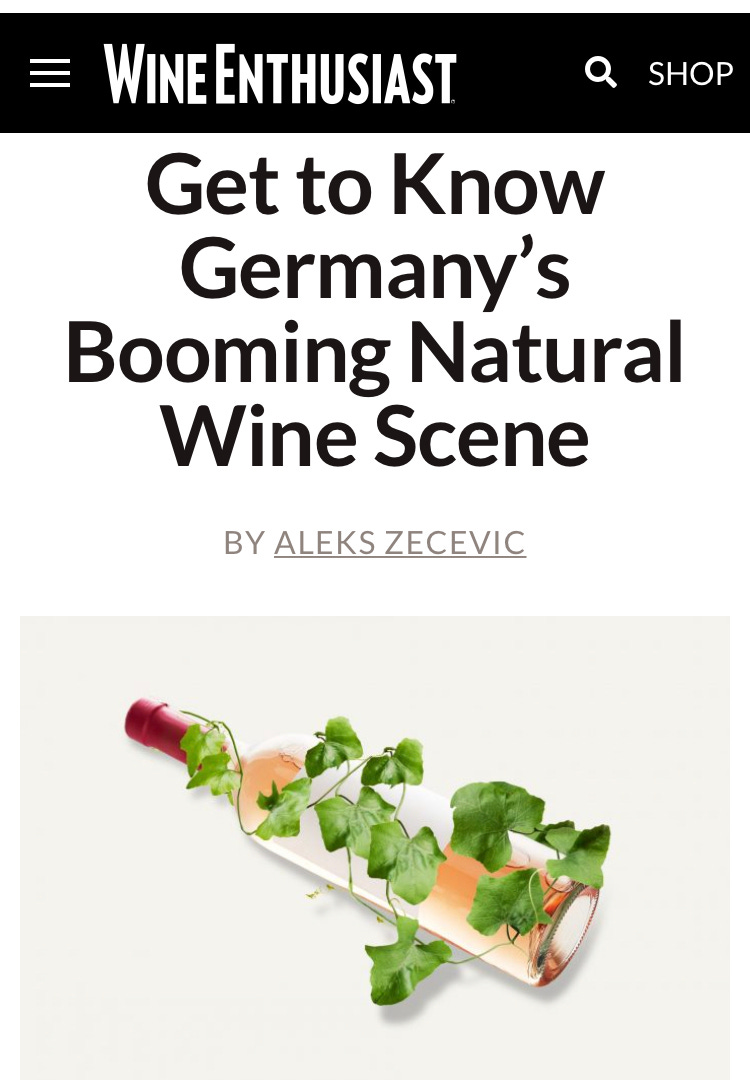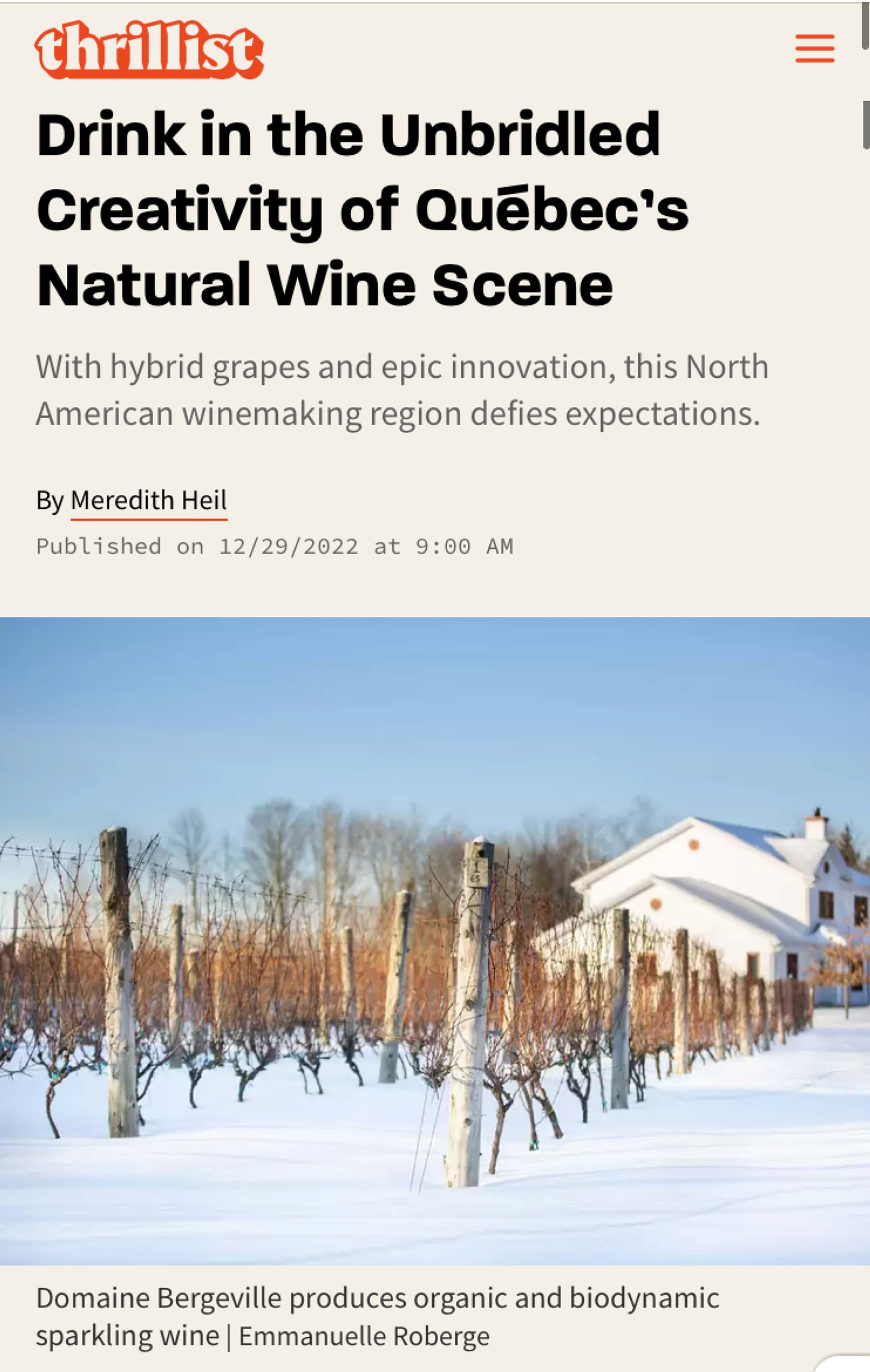Delivery Déjà Vu
Delivery Déjà Vu. This week the Liquor Control Board of Ontario (LCBO) announced the launch of a new pilot allowing Skip the Dishes and others to deliver alcohol. If this sounds familiar it’s because it is. On December 4, 2020, SkipTheDishes and the LCBO announced a partnership to deliver beverage alcohol, but a few days later on December 6 the LCBO suspended its partnership with SkipTheDishes after it was instructed to so by the Ontario government. Tomas Morana of Toronto’s Bar Volo was critical of the 2020 announcement but explains that things are different now:
Look, the timing was just really, really bad last time. Places were just desperately trying to sell all their stock online, because that was the only outlet we had. It just didn’t seem like a classy thing for the LCBO to be doing when everyone was struggling. Things are different now. And this really isn’t any different than Dial a Bottle.
But not everyone feels the same way. Ryan Mallough, Vice-President of Ontario Legislative Affairs with the Canadian Federation of Independent Business said the new partnership will put businesses at a disadvantage, according to CP24’s 'It's not fair': Businesses frustrated with partnership between LCBO and Uber Eats.
We've already heard from a few of our members in the hospitality industry, and it's a bit of a tough blow. (The) hospitality (industry) is still in a very tough place. More than half still aren't back to their normal revenue levels.
While alcohol is already permitted to be delivered in Ontario by restaurants and bars via delivery apps, it must be sold with food. Whereas with this new announcement, alcohol from the LCBO can be sold and delivered on its own. The Premier of Ontario was unaware of that discrepancy but will apparently “look into it,” according to a tweet by Queen’s Park reporter Richard Southern.
Germany’s Natural Wine Scene. In Wine Enthusiast’s Get to Know Germany’s Booming Natural Wine Scene, Aleks Zecevic writes about the emergence of natural wine producers in Germany, which has 13 major wine regions. Stephen Bitterolf of NY-based importer Vom Boden, which specializes in German wine, explains that natural winemakers have an important role in preserving old vineyards:
They work in vineyards that are really hard to farm but have incredibly important historical genetics [of old, ungrafted, pre-phylloxera vines]. They are literally saving the history of the region and defining a new Mosel…
By avoiding harmful chemicals and preserving old vines, Zecevic says that natural winemakers are important from an ecological standpoint. He points to the Brand Bros in Northern Pfalz who converted their farming to organic in 2014. Jakob Tennstedt, of the eponymous winery in the Mosel also grows grapes organically, and Madame Flöck winery, also in the Mosel, is working on converting their vineyard to organic. Other natural winemakers in Germany highlighted by Zecevic include Bianka und Daniel Schmitt (Rheinhessen), Daniel Schweizer (Baden-Württemberg), 2Naturkinder (Franken), Andi Weigand (Franken), and Enderle and Moll (Baden).
Québec’s Natural Wine Scene. Meredith Heil writes about the Unbridled Creativity of Québec’s Natural Wine Scene and its small and mighty winemaking region (138 wineries!). Zaché Hall, owner of Domaine l'Espiègle says:
The industry is still tiny but we’ve done leaps and bounds in regards to quantity and quality in the last two decades. There are many new producers of very varied backgrounds, but I think what unites us most is our enthusiasm for attempting something new and risky, and potentially highly rewarding.
Marc Théberge, winemaker and co-owner of Domaine Bergeville, says the Québec market is open to new and different styles of wine:
This diversity, coupled with a very strong determination to nurture environmentally sound vine-growing, is what sets us apart.
Thierry Fournier, sommelier at Chez Muffy, explains that Québec’s climate (cold!) makes it difficult to cultivate grapes. Enter hybrid grapes, which are made by crossing European Vitis vinifera vines with American Vitis labrusca or Vitis riparia grapes, making them more resistant to insect, disease, and cold temperatures. And a lot of Québec winemakers use them. Other recommended wineries from the article include Maison Joy Hill, Vignoble Les Pervenches, Pinard et Filles, and Vignoble Pigeon Hill.




